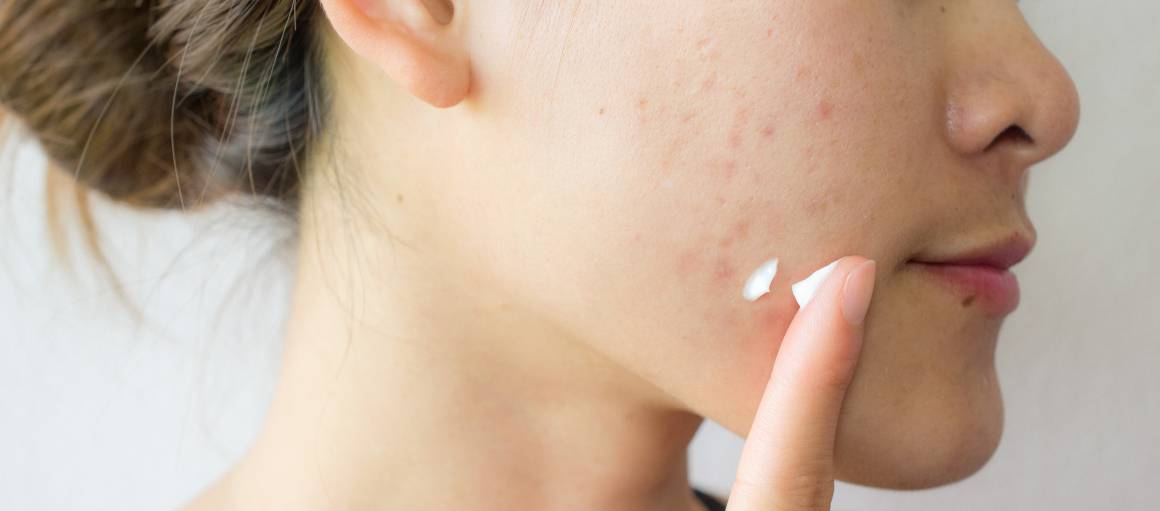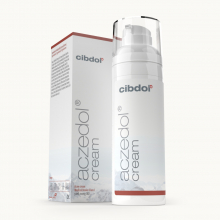How can I prevent acne naturally?
Published:
Acne is one of the most common skin conditions that affects people of all ages. It can be frustrating, painful, and leave unwanted scars. While acne treatments are readily available, many contain harsh chemicals that can irritate the skin. Fortunately, there are many natural ways to prevent and treat acne without harming your skin.
Contents:
- What Causes Acne?
- Natural Ways to Prevent Acne
- Summary: How to Prevent Acne Naturally
- Frequently Asked Questions on Preventing Acne Naturally
- What causes acne in the first place?
- How can I prevent acne naturally through skin care?
- What dietary changes can help prevent acne?
- How does lifestyle impact acne?
- What natural remedies can I use for preventing acne?
- When should I see a dermatologist for acne?
- Summary

What Causes Acne?
Acne forms when dead skin cells, oils, and bacteria clog hair follicles on the skin. This leads to swellings called comedones that can cause whiteheads, blackheads, pimples, cysts, and nodules. There are various factors that contribute to acne development:
- Hormones - Androgen hormones increase oil production which can clog pores. This is why acne is common during puberty. Fluctuations during the menstrual cycle and menopause can also trigger breakouts.
- Bacteria - The bacteria Propionibacterium acnes (P. acnes) contributes to inflammation.
- Genetics - Studies show acne runs in families.
- Stress - High stress levels increase inflammation and worsen acne.
- Diet - Foods with a high glycemic index like refined carbs can trigger breakouts. Dairy and foods rich in iodine also influence acne.
- Medications - Certain medications containing lithium, corticosteroids, or testosterone can cause acne.
- Skincare products - Oil-based cosmetics, heavy creams, and other products can clog pores.
Natural Ways to Prevent Acne
Making smart lifestyle choices and using natural remedies can help prevent acne without damaging your skin like harsh chemicals. Here are some effective tips:
Keep Skin Clean
- Wash your face twice a day with a gentle, non-comedogenic cleanser. Avoid harsh scrubs.
- Use lukewarm water and pat dry with a clean towel. Rubbing can irritate sensitive skin.
- Shower right after exercise, sweat, and dirt buildup.
- Avoid popping, squeezing, or touching pimples. This can push bacteria deeper and cause infections.
- Change pillowcases, towels, and sheets regularly to prevent bacteria transfer.
Adopt an Acne-Fighting Diet
- Drink plenty of water to keep skin hydrated and flush out toxins.
- Limit dairy intake. Milk contains hormones and bioactive molecules that can trigger breakouts.
- Eat more antioxidant and vitamin C rich fruits and vegetables.
- Avoid refined carbs like white bread, cookies, and sugary snacks.
- Minimize processed and fried foods which can contain acne-provoking oils.
- Consider probiotic supplements to balance gut bacteria.
Use Natural Skin Care Remedies
Nature offers simple and effective solutions for clear, healthy skin:
- Tea tree oil - Contains antimicrobial compounds to kill acne-causing bacteria. Use a 5% solution.
- Apple cider vinegar - Has antibacterial and anti-inflammatory abilities. Mix with water and apply with a cotton ball.
- Aloe vera gel - Heals inflammation and reduces redness. Apply pure gel to affected areas.
- Green tea - Polyphenols reduce sebum production and P. acnes bacteria. Use cool tea bags or extract on skin.
- Honey - Has antioxidants and antimicrobial properties. Apply raw honey as a face mask.
- Turmeric - Curcumin has potent anti-inflammatory effects. Make a paste with water or yogurt.
- Oregano oil - Thymol fights P. acnes bacteria. Dilute with carrier oil before applying.
- Rosewater - Soothes skin and has mild astringent properties. Use as a toner.
- Sea salt - Exfoliates dead skin cells clogging pores. Mix with water and gently scrub skin.
Lead an Acne-Fighting Lifestyle
Your daily habits impact acne too. Here are some easy lifestyle tweaks:
- Exercise regularly to lower stress and balance hormones.
- Get 7-8 hours of sleep per night. Lack of sleep increases cortisol levels.
- Manage stress with yoga, meditation, or other relaxing activities.
- Avoid wearing caps, headbands, and tight collars that rub against skin.
- Change bedding regularly and use laundered pillowcases to prevent pore-clogging oils.
- Avoid direct sun exposure which can darken acne scars. Wear non-comedogenic sunscreen.
- Stay hydrated and drink 8-10 glasses of water daily.
- Stop smoking and avoid secondhand smoke which impacts acne.
Summary: How to Prevent Acne Naturally
Acne can be managed naturally with a few key strategies:
1. Cleanse gently: Use a mild cleanser and lukewarm water twice daily. Avoid harsh scrubs.
2. Eat a skin-friendly diet: Limit dairy, refined carbs, and processed foods. Eat more fruits, veggies, and probiotics.
3. Apply natural remedies: Use tea tree oil, apple cider vinegar, aloe vera, green tea, turmeric, honey, and other plant-derived remedies.
4. Maintain an acne-fighting lifestyle: Exercise, get enough sleep, manage stress, avoid pore-clogging habits, stay hydrated, and quit smoking.
A holistic approach is most effective for clear and healthy skin in the long run. If breakouts persist, consult a dermatologist to rule out underlying factors. With some diligence, you can prevent acne flare ups naturally.
Frequently Asked Questions on Preventing Acne Naturally
Acne is a common skin condition that affects many people. While acne treatments are readily available, many come with side effects or contain harsh ingredients. Fortunately, you can take natural approaches to prevent and treat acne without damaging your skin.
What causes acne in the first place?
Acne forms when dead skin cells, excess oil (sebum), and bacteria clog up hair follicles on the skin. This leads to swellings called comedones that can cause whiteheads, blackheads, pimples, cysts, and nodules. Several factors contribute to acne:
- Hormonal changes - Androgen hormones increase sebum production, often seen in teens. Menstrual cycle and menopause fluctuations can also trigger breakouts.
- Bacteria - Propionibacterium acnes (P. acnes) bacteria contributes to inflammation.
- Genetics - Acne runs in families.
- Stress - High stress levels increase inflammation and worsen acne.
- Diet - Foods with a high glycemic index like refined carbs can trigger breakouts. Dairy and iodine-rich foods also influence acne.
- Medications - Certain medications like lithium, corticosteroids, and testosterone can cause acne.
- Skincare products - Oil-based cosmetics, heavy creams, and other products can clog pores.
How can I prevent acne naturally through skin care?
You can take some easy skin care steps to prevent acne naturally:
- Wash your face twice daily with a mild, non-comedogenic cleanser and lukewarm water. Avoid harsh scrubs.
- Rinse skin and pat dry with a clean towel. Rubbing can irritate sensitive skin.
- Shower immediately after exercise, sweat, and dirt buildup to wash away oil and bacteria.
- Use toner made with natural ingredients like apple cider vinegar or rose water after cleansing.
- Exfoliate 2-3 times a week with a gentle scrub containing salicylic acid or natural ingredients like oatmeal.
- Apply natural remedies like tea tree oil, green tea, aloe vera, honey, etc. to help fight acne.
- Avoid popping, squeezing, or touching pimples to prevent pushing bacteria deeper.
- Change pillowcases, towels, and sheets regularly to prevent pore-clogging oil and dirt buildup.
What dietary changes can help prevent acne?
Diet significantly impacts acne. Here are some key dietary tips:
- Drink plenty of water to keep skin hydrated and flush out toxins.
- Limit dairy intake like milk, cheese, yogurt, etc. Dairy contains hormones and bioactive molecules that trigger breakouts.
- Eat more antioxidant and vitamin C rich fruits and vegetables.
- Avoid refined carbohydrates like white bread, cookies, cakes, sugary snacks etc. which spike blood sugar.
- Minimize consumption of processed and fried foods containing acne-provoking oils.
- Consider taking probiotic supplements to balance gut bacteria.
- Reduce iodine intake from foods like seaweed and iodized salt which exacerbate acne.
- Avoid whey protein powders, which can worsen hormonal acne. Instead try plant-based proteins.
How does lifestyle impact acne?
Your daily habits and lifestyle choices affect acne breakouts too. Here are some tips:
- Exercise regularly to lower stress hormones like cortisol and balance other acne-triggering hormones.
- Get 7-8 hours of sleep per night. Lack of sleep increases cortisol.
- Manage stress with yoga, meditation, journaling, or other relaxing hobbies. High stress worsens acne.
- Avoid wearing tight collars, caps, headbands, or sports helmets that rub against skin.
- frequently change bedding and use clean laundered pillowcases to prevent pore-clogging oil and dirt buildup.
- Avoid direct sun exposure which can darken acne scars. Wear non-comedogenic sunscreen instead.
- Stay hydrated and drink 8-10 glasses of water daily. Dehydration worsens acne.
- Stop smoking and avoid secondhand smoke exposure which can trigger breakouts.
What natural remedies can I use for preventing acne?
Many natural ingredients have antimicrobial, anti-inflammatory, and antioxidant properties to fight acne:
- Tea tree oil - Contains antimicrobial compounds to kill acne-causing bacteria. Use a 5% solution.
- Apple cider vinegar - Has antibacterial and anti-inflammatory abilities. Mix with water and apply with cotton ball.
- Aloe vera - Its enzymes reduce inflammation and redness. Apply pure gel on affected areas.
- Honey - Has antioxidant and antimicrobial properties. Use as a wash-off face mask.
- Turmeric - Curcumin has anti-inflammatory benefits. Make a paste with water or yogurt.
- Green tea - Polyphenols reduce sebum production. Apply cool tea bags or extract.
- Oregano oil - Thymol fights acne bacteria. Dilute with carrier oil before use.
- Rose water - Soothes skin and has mild astringent properties. Use as toner.
- Sea salt - Gently exfoliates dead skin cells clogging pores. Mix with water and scrub.
When should I see a dermatologist for acne?
You should see a dermatologist if:
- Over-the-counter medications and natural remedies don't improve acne after 6-8 weeks.
- You experience large, painful nodules and cysts on face, chest, back, etc.
- Acne is leaving scars or dark spots.
- You have sudden adult acne with no prior history.
- Acne worsens around period or is accompanied by excess facial/body hair.
- Acne is causing emotional distress like low self-esteem.
A dermatologist can prescribe targeted medications like retinoids, antibiotics, birth control pills, etc. after examining acne causes like hormones. They can also offer treatments like cortisone shots, laser, etc. for severe acne.
Summary
You can prevent and treat acne naturally by:
- Cleansing skin gently
- Following an acne-fighting diet
- Using natural remedies like tea tree oil, aloe, honey etc.
- Making healthy lifestyle choices
See a dermatologist if significant breakouts persist despite natural remedies. With some diligence, you can get clear skin!















